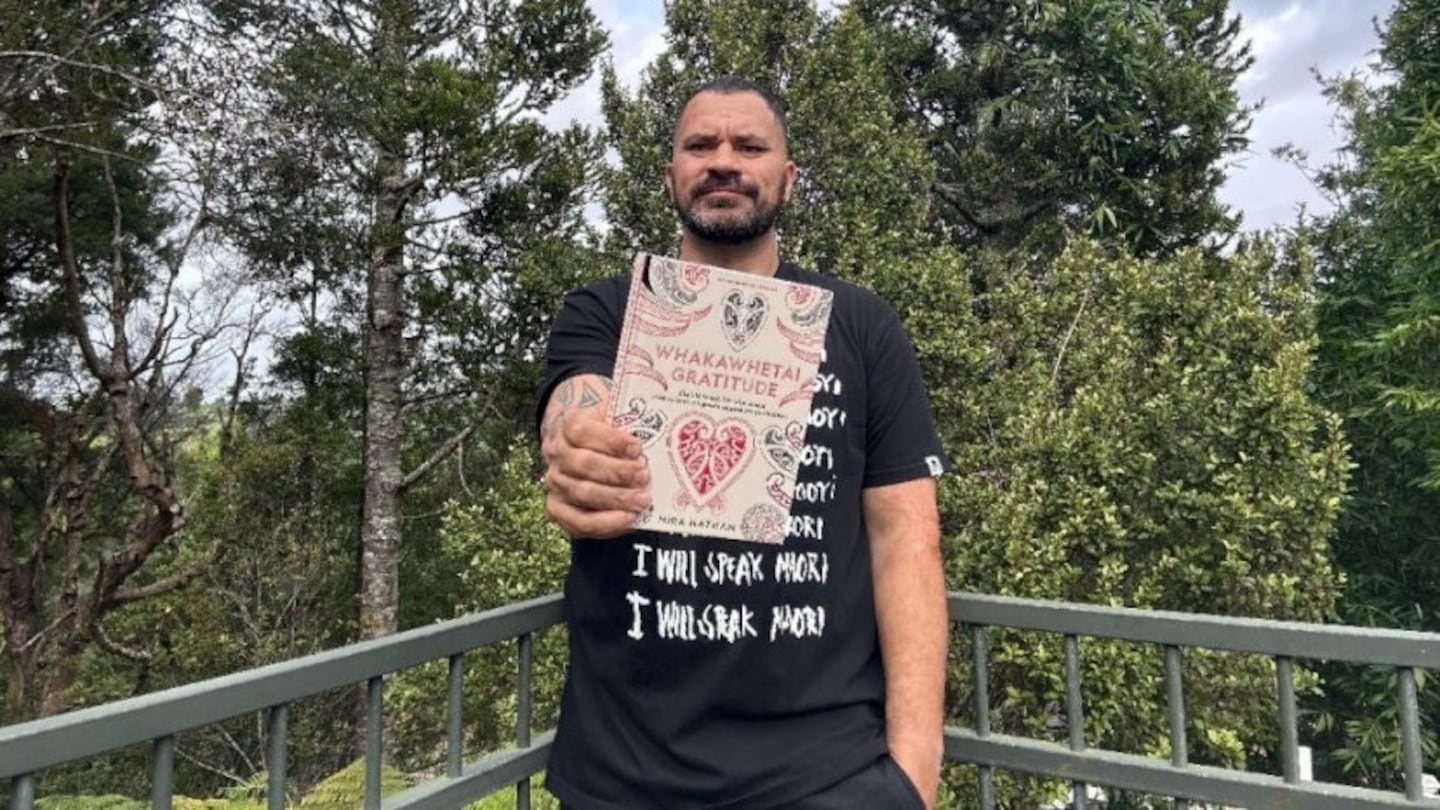Hira Nathan says the bilingual journal sits easily alongside how Māori are naturally. 'We don't call it gratitude but we express it in different ways'. Photo / Supplied
Hira Nathan (Ngāti Kahungunu, Ngāti Tūwharetoa and Ngā Puhi) was learning te reo Māori when he first decided to make his own gratitude journal, Whakawhetai Gratitude.
Self-published about 18 months ago, his very first attempt at putting together something like this went on to sell thousands of copies and now the journal that he still gets emotional about is being republished - complete with full-colour illustrations by a Māori illustrator.
Originally from Hastings, Nathan, 41, works as an electrician in Auckland. He got started creating the journal after he was given one - and told 'just give it a go'.
"I wasn't into it at the start. I was like 'what is this?'" he says.
"The guy that gave it to me said 'just do it for a couple of weeks and then if you hate it 'sweet as''. So I did it and I loved it, instantly. It just changed the whole way I looked at things.
"I'd be driving down the road and someone would let me in and I'd be 'oh, that's going in my gratitude journal', or I'd get a good carpark at the supermarket - 'it's going in my journal'. Or I'd have a nice sandwich or something."
A daily bilingual journal
What clinched Nathan's decision to get writing was his experience trying to buy a new copy when he finished the one he'd been given.
"I went to buy another one and it was fifty dollars American. I was like, 'I don't think I want to spend that much on it. Well, I'll make my own."
He decided he wanted the journal to reflect his culture and Aotearoa.
"At the time, I was learning te reo. I was going to the wananga. And I thought, 'well, how do I put both of those together?'"
And so Whakawhetai was born.
Nathan says he was overwhelmed by the response to the journal.
"It kind of got bigger than we expected. We didn't really expect it to blow up. I was originally going to get 50 printed. And if my friends and family got them then 'no worries'. Then my girlfriend talked me into getting 200 printed and they sold out in three days. And then it just sort of escalated from there."
'I got a little bit emotional'
One woman's response in particular sticks out for Nathan. "I got a little bit emotional, actually."
"Someone posted on Facebook that she had been looking for a gratitude journal for a while now. She had other gratitude journals and then she got our one. She thought it resonated with her so much that she felt the journal had 'found her'."
Nathan says a gratitude journal sits easily alongside how we naturally are as Māori and it would be wrong to assume we wouldn't find one valuable or helpful.
"We don't call it gratitude but we express gratitude in different ways. Like, I think karakia is a type of gratitude. When you start something you give thanks, you ask for protection, you acknowledge the atua. But it's also a way of being grateful for what's about to happen. Even when we finish something like you might go for a dive and then you finish diving and at the end you do a little karakia. It's a way of saying thank you to Tangaroa for giving you the kai that you've just got. So we do do it, we just don't call it gratitude."
Nathan admits Māori men - and men in general - may sometimes be hard to reach with self-help material such as this. "We're a hard lot to crack".
"If I was trying to encourage men to start a gratitude practice, it would probably just be to give it a go, you've got nothing to lose. Just like me, if after a little bit it's not for you then it's not for you," he says.
"Like I said before, we do it anyway. It's just recognising that we do it. Like when we say thank you to people, when we acknowledge the kaumātua, people that have gone before, or Papatūānuku.
"But if we write it down, we're more likely to remember it, and it has a little bit more impact."
Hira Nathan’s Whakawhetai Gratitude, A daily bilingual journal, is published by Allen & Unwin NZ and on sale from 16 May 2023 for $36.99.
The full-colour, new version, features illustrations by Huriana Kopeke-Te Aho (Tūhoe, Ngāti Porou, Rongowhakaata, Te Āti Haunui-a-Pāpārangi, Ngāti Kahungungu).

